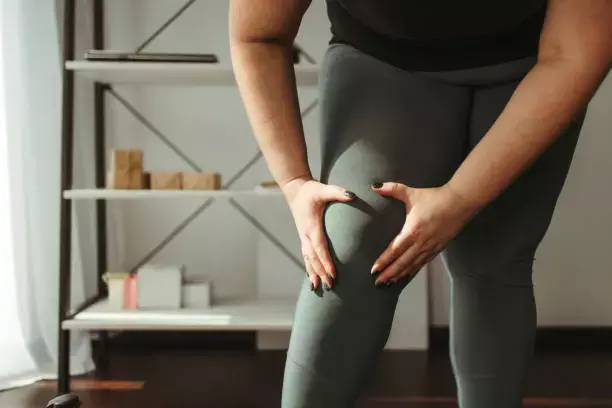- Home
- Medical news & Guidelines
- Anesthesiology
- Cardiology and CTVS
- Critical Care
- Dentistry
- Dermatology
- Diabetes and Endocrinology
- ENT
- Gastroenterology
- Medicine
- Nephrology
- Neurology
- Obstretics-Gynaecology
- Oncology
- Ophthalmology
- Orthopaedics
- Pediatrics-Neonatology
- Psychiatry
- Pulmonology
- Radiology
- Surgery
- Urology
- Laboratory Medicine
- Diet
- Nursing
- Paramedical
- Physiotherapy
- Health news
- Fact Check
- Bone Health Fact Check
- Brain Health Fact Check
- Cancer Related Fact Check
- Child Care Fact Check
- Dental and oral health fact check
- Diabetes and metabolic health fact check
- Diet and Nutrition Fact Check
- Eye and ENT Care Fact Check
- Fitness fact check
- Gut health fact check
- Heart health fact check
- Kidney health fact check
- Medical education fact check
- Men's health fact check
- Respiratory fact check
- Skin and hair care fact check
- Vaccine and Immunization fact check
- Women's health fact check
- AYUSH
- State News
- Andaman and Nicobar Islands
- Andhra Pradesh
- Arunachal Pradesh
- Assam
- Bihar
- Chandigarh
- Chattisgarh
- Dadra and Nagar Haveli
- Daman and Diu
- Delhi
- Goa
- Gujarat
- Haryana
- Himachal Pradesh
- Jammu & Kashmir
- Jharkhand
- Karnataka
- Kerala
- Ladakh
- Lakshadweep
- Madhya Pradesh
- Maharashtra
- Manipur
- Meghalaya
- Mizoram
- Nagaland
- Odisha
- Puducherry
- Punjab
- Rajasthan
- Sikkim
- Tamil Nadu
- Telangana
- Tripura
- Uttar Pradesh
- Uttrakhand
- West Bengal
- Medical Education
- Industry
Dietary vitamin K consumption reduces osteoarthritis knee pain, study suggests

China: In a new study conducted by Zetao Liao and team, it was found that there is a connection between increased vitamin K consumption and reduced knee symptoms over 24 months in individuals with knee osteoarthritis (OA). The findings of this study were published in Arthritis Care & Research.
The purpose of this study was to look at relationships between dietary vitamin K consumption and alterations in knee symptoms and structures in knee OA patients.
A total of 259 participants with symptomatic knee OA were included, and 212 of them underwent 2-year follow-up. A validated food frequency questionnaire was used to quantify the baseline dietary vitamin K consumption. The Western Ontario and McMaster University Index of Osteoarthritis (WOMAC) scores were used to evaluate knee complaints. Using MRI images, the volume of the effusion-synovitis, bone marrow lesions, and knee cartilage abnormalities were calculated. Analysis methods included both single-variable and multiple-variable linear regressions.
The key findings of this study were as follow:
1. Over a period of 24 months, a higher vitamin K consumption quartile was substantially linked to a bigger decline in the total WOMAC score and dysfunction score.
2. The subgroup analysis demonstrated that the higher vitamin K consumption quartile was linked with better improvement in all WOMAC scores in individuals with severe baseline VAS pain.
3. Overall, there was no correlation between vitamin K consumption and modifications in MRI characteristics.
4. Vitamin K intake was found to be negatively associated with changes in tibiofemoral, patellar, and total cartilage defects in participants with a serious baseline radiographic grade as well as with changes in total and patellar cartilage defects in participants with severe baseline VAS pain and in female patients.
In conclusion, clinical trials exploring the impact of vitamin K supplementation for knee OA symptoms are necessary, according to the link between increased baseline vitamin K consumption and reduced knee symptoms over 24 months in individuals with knee OA found in this study. It is uncertain whether there is an impact on knee structure, and more research is necessary.
Reference:
Liao, Z., Chang, J., Zhu, Z., Han, W., Meng, T., Zheng, S., Tu, L., Antony, B., Winzenberg, T., Wluka, A. E., Cicuttini, F., & Ding, C. (2022). Associations between dietary intake of vitamin K and changes in symptomatic and structural changes in patients with knee osteoarthritis. In Arthritis Care & Research. Wiley. https://doi.org/10.1002/acr.24964
Neuroscience Masters graduate
Jacinthlyn Sylvia, a Neuroscience Master's graduate from Chennai has worked extensively in deciphering the neurobiology of cognition and motor control in aging. She also has spread-out exposure to Neurosurgery from her Bachelor’s. She is currently involved in active Neuro-Oncology research. She is an upcoming neuroscientist with a fiery passion for writing. Her news cover at Medical Dialogues feature recent discoveries and updates from the healthcare and biomedical research fields. She can be reached at editorial@medicaldialogues.in
Dr Kamal Kant Kohli-MBBS, DTCD- a chest specialist with more than 30 years of practice and a flair for writing clinical articles, Dr Kamal Kant Kohli joined Medical Dialogues as a Chief Editor of Medical News. Besides writing articles, as an editor, he proofreads and verifies all the medical content published on Medical Dialogues including those coming from journals, studies,medical conferences,guidelines etc. Email: drkohli@medicaldialogues.in. Contact no. 011-43720751


